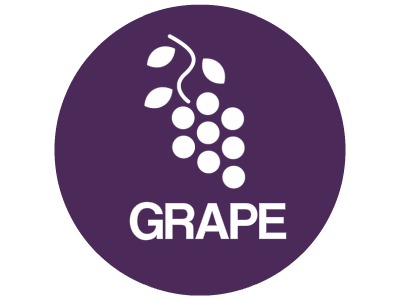They were doing it all, at home, under Michigan’s Cottage Food Law which exempts a “cottage food operation” from the licensing and inspection provisions of the Michigan Food Law of 2000, until Sara and Kelli realized that they had to make their dip inside a licensed kitchen because it is a dairy product.
That is when they found the Fair Food Matters, Can-Do Kitchen in Kalamazoo, an incubator for businesses like Fizzy Bread & Dips, a place where people like Kelli and Sara can build their businesses without putting out tens of thousands of dollars to set up their own commercial kitchens.
Fizzy Bread – a bread mix that is combined with any 12 ounce, carbonated beverage like soda pop or beer as the leavening agent—is still being made at home but the dip is being created at Can-Do Kitchens, and Sara said the resources offered by Can-Do are more than just a stove, range and refrigerator.
“It is a teaching tool that is helping our business grow,” she wrote in an email. “Of course, it has also allowed us to make our product and sample it to our customer base without incurring the large costs of owning a licensed kitchen.”
Can-Do Kitchen Program Manager Lucy Bland told me that Kelli and Sara are building their home-based business the right way, doing their research, taking small steps toward their ultimate goal of selling their products in stores, and doing it all around their full-time jobs.
They are not the first to do this, Bland said, and she is sure Kelli and Sara will not be the last. “Some people do want to keep their business as a Cottage Law or hobby business,” Bland said.
“But as more incubators (like Can-Do) pop up, the people who are really committed will go to them. And I think there is a lot of room in the market for these businesses. More of us really want to know who is making our food.”
One of the provisions of the Cottage Food Law makes sure of that, prohibiting a third party from getting between the producer and the customer. In other words, Cottage Food producers, by law, have to talk to the people buying their food.
The growth of the farmers’ market movement in Michigan is fueling interest in Cottage Food Law operations, according to Bland. People who go to the events see others, like themselves, setting up food stands and selling the pies, cakes, breads and jams they have made at home. This law also allows farmers to offer new products at the markets that are made in their home kitchens.
Bland said starting a Cottage Food Law operation at home can be a great way for someone dreaming of launching their own company to figure out “how committed you are to the business.
Do you really want this to be your job? Some people find they really don’t.”
She added that starting at home and then expanding to an incubator like Can-Do is also a way to not only test yourself and your commitment, but also to test your recipes.
“We have to see where this goes but so far, yes, it is still fun,” Kelli said. “We were best friends in high school and we still are. It doesn’t feel like work to be doing this together.”
That’s there better idea. What’s yours?
More of this story and other stories of entrepreneurs like Kelli and Sara are told in the five-part ebook essay series, Restore The Roar: Manufacturing Renaissance. Rod has also written stories of the people with a better idea on Grand Rapids’ Medical Mile in, Last Chance Mile: The Reinvention of an American Community.
For more information, please to go www.rodkackley.com
Rod Kackley
(C) 2013 Lyons Circle Publishing Inc.
rod@rodkackley.com
If you like this post, please share using buttons at left (seen on individual posts only). If you like would to guest blog, please contact John M Potter. John serves as GRAPE’s Host. You can find him on Facebook, Google+, and LinkedIn.
